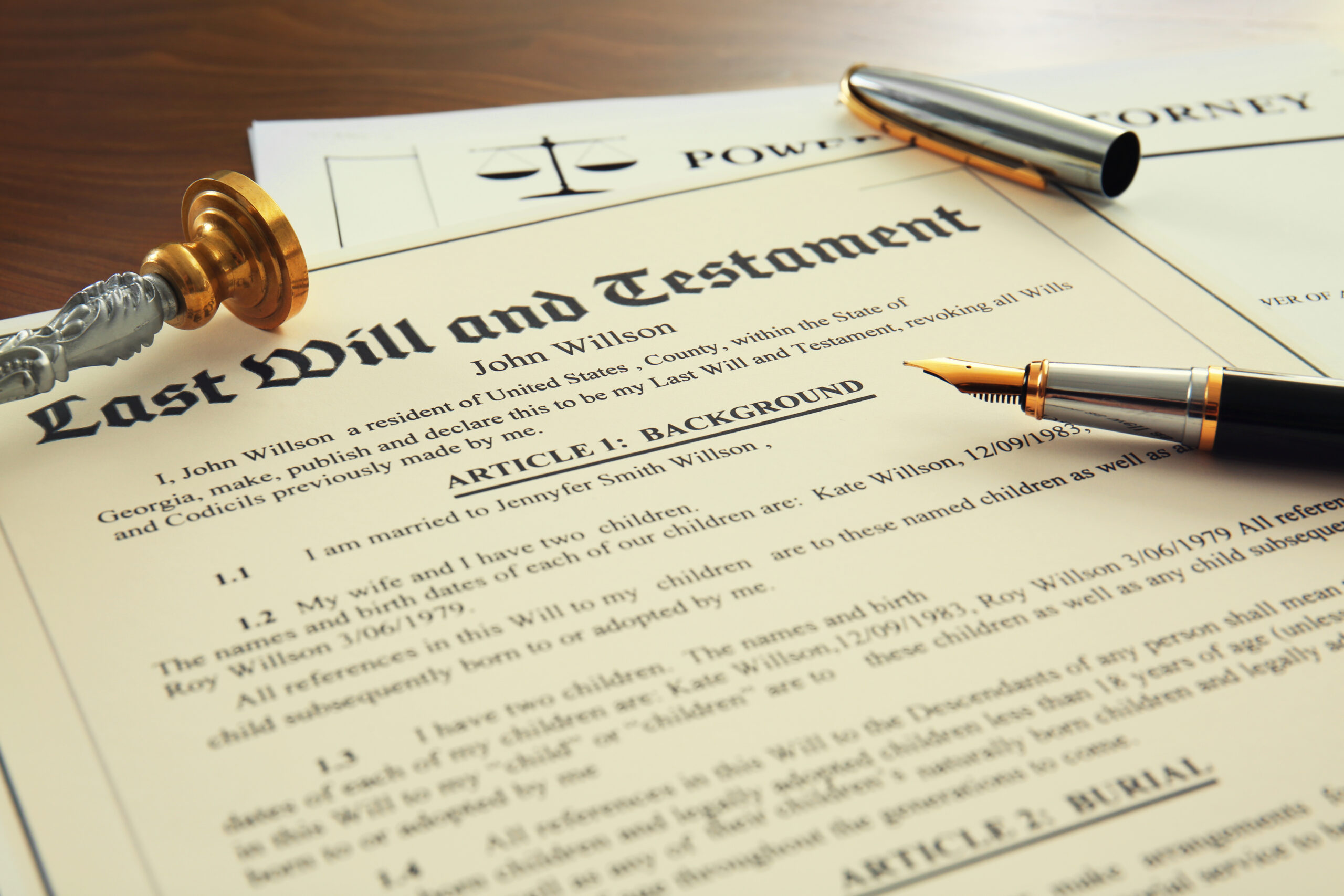October 2nd, 2023
The Biggest Mistakes People Make with Their Wills
Posted in: Estates, Trusts & Probate Tagged: James C. Crosland

Everyone should have a will. But having a will isn’t always enough – here are some of the biggest mistakes people often make when considering the terms of their wills.
Mistake 1: Not Having a Will
If a person dies without a will, they die “intestate”. Dying intestate can have serious and anticipated consequences for both your estate and your loved ones. A separate article that discusses what happens when someone dies intestate can be found here.
Mistake 2: Lump Sum Inheritances
Transferring large sums of money outright, all at once, can have unintended and negative consequences. Many people may not be able to responsibly handle a large and unrestricted inheritance, and a sudden cash infusion can do more harm than good. Family members with addiction problems, for example, may struggle to make healthy decisions. Likewise, adults in their late teens or early 20s may not be fiscally responsible.
With a will, one can give the money to a trust for a family member’s benefit. A trust allows for more protections and guardrails, such as limiting the amount and scope of distributions, and providing protections against creditors and divorce.
Mistake 3: Leaving Loose Ends
Although having a will is crucial, it is not a silver bullet. For example, retirement accounts, investment accounts, and life insurance policies require the owner to designate beneficiaries upon their death. A will does not supersede those beneficiary designations. If one’s will says to give all assets to two children equally, but all of those assets are in a single retirement account which names only one child as a beneficiary, then the other child is out of luck. In short, it is important to coordinate one’s will with their beneficiary designations.
Similarly, people often add co-owners to bank accounts for convenience reasons. Under Maryland law, however, the presumption is that the surviving co-owner inherits the account. Having a will can solve this problem if the intent is to distribute the account to multiple individuals, and not just the co-owner.
Mistake 4: Administration of the Estate
Estate administration is a time-consuming and emotional job, and not everyone is up to the task. When appointing a Personal Representative (also known as an Executor in some states), it is important to select someone who has the time, energy, and emotional fortitude to coordinate with the courts, financial institutions, and family members.
It is also important to nominate at least one successor, or back-up, Personal Representative. Unfortunately, it is all too common for the named Personal Representative to be unable or unwilling to serve when the time comes. Without a named successor, Maryland law stipulates a pecking order as to who has priority to serve as Personal Representative, and the next person in line may not be who you want to your affairs. Nominating a successor Personal Representative is an easy way to avoid this situation.
Mistake 5: Naming of a Temporary and Permanent Guardian for Minors
If you have minor children, it is crucial to name both a Temporary Guardian and a Permanent Guardian. Essentially, this person will step into this role on a temporary basis if you are living but unable to care for your children, or, upon your death, permanently. The Temporary Guardian and Permanent Guardian need not be the same person, and, as discussed above, it is important to name successors for both roles.
Your Temporary and Permanent Guardians should be people you trust to care for and raise your children if you are unable to do so. It is important to pick someone who shares your values, and who will raise your children in a way you’re comfortable with.
Ultimately, naming individuals to serve in these roles ensures that your children will be raised by the people you choose, and not someone nominated by a court.
If you’d like to create or update your will to ensure that it achieves your wishes, contact our Trusts and Estate team.







